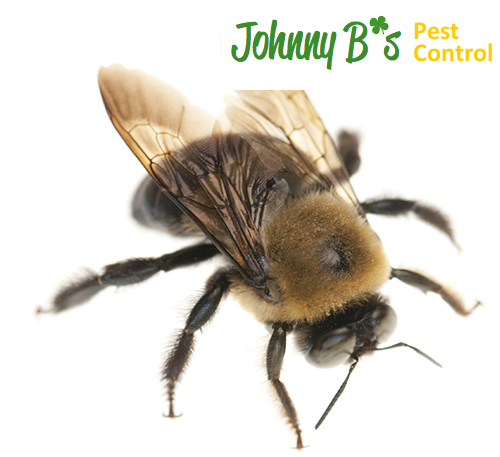Massachusetts is home to numerous bee species that are divided into several groups. For example, the most well known group of bees, social bees, are abundant within the state. Social bees include bumblebees and European honey bees. In addition to social bees, Massachusetts is also home to solitary bee species, the most notable of which is the carpenter bee. Unfortunately, the carpenter bee is categorized as a structural pest, as these bees excavate a home’s structural lumber for their own nesting purposes. Sweat bees are largely comprised of solitary bee species and they can be a nuisance to Massachusetts residents, as this species is attracted to human perspiration.
Although the common European honey bee is an economically essential species on account of the fact that they pollinate most of the world’s crops, honey bees can sometimes cause a nuisance within Massachusetts homes where their infestations can pose a danger to residents. In fact, a successful north Boston business owner, Ivy Lawson, decided to sell natural bee-related health products after her Boston home became flooded with honey in response to a massive bee infestation that had been inhabiting her walls. This literal flood of honey caused her home’s heating system to short out. Also, last fall, a run-down police station in Merrimac required a 6.5 million dollar renovation that was partly due to a massive honey bee infestation on the building’s second floor. Back in 2013, an estimated 45,000 bees swarmed a yellow-colored taxi-cab in Dorchester. Experts theorized that the bees swarmed the vehicle due to their natural attraction to the color yellow.
While honey bee infestations are not uncommon in Massachusetts, pest control professionals and professional bee-removal officials almost always remove bees from infested homes without harming any specimens, especially the queen. As you can imagine, this makes removing a honey bee nest from an infested home a difficult undertaking. Technically, exterminating honey bees that are infesting a home is not illegal in Massachusetts, but extermination is frowned upon by local apiaries and beekeeping associations due to the current honey bee population crisis and the high economic value of honey bee colonies. Unfortunately, the Massachusetts Department of Agricultural Resources does not provide a free bee removal service for residents who find a bee infestation within their home.
Have you ever found several bees flying within your home?

